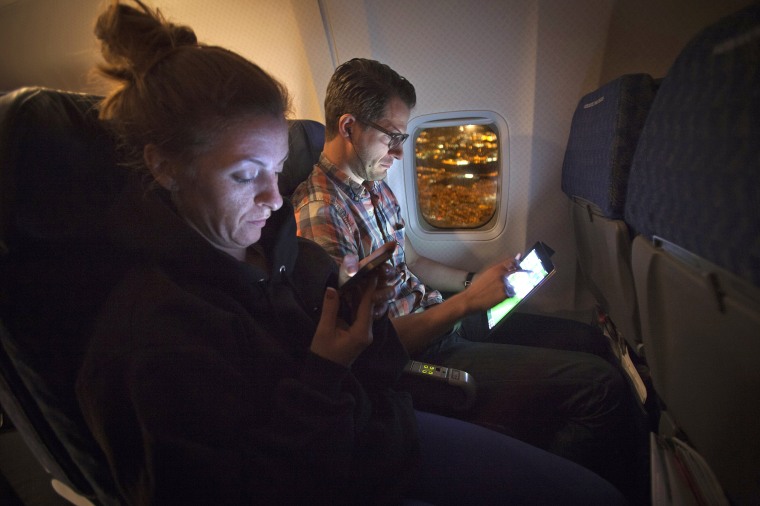With the holiday travel season in full swing, millions of people will be relying on public Wi-Fi, whether it's at a restaurant, the airport or - for a small fee - in the air. But just how safe is in-flight Wi-Fi?
We're about to find out.
Gogo, the in-flight internet company, is now inviting hackers to take a stab at hacking their internet. While that may sound counterintuitive, these hackers are the good kind, and are participating through Bugcrowd, a bug bounty company.
Related: A Behind-the-Scenes Look at Hackers Who Get Paid to Find Bugs
The program will cover Gogo's ground-based public website and its airborne systems, which will only be accessible to participating hackers when they're flying on a Gogo-equipped aircraft.
If a hacker finds a bug, he or she can report it through Bugcrowd, where it will be evaluated and reported to Gogo. The rewards range from $100 to $1,500, depending on the find.
"It's changing this model of, 'We don't want any feedback. We don't want hackers looking at our stuff,' to, 'OK, actually we think this is a healthy thing, come talk to us,'" Jonathan Cran, vice president of operations at Bugcrowd, told NBC News.
"Public Wi-Fi is a minefield. You could navigate that minefield and get through unscathed - but you may get blown up too," Robert Siciliano, CEO of IDTheftSecurity.com told NBC News.
Skilled hackers can use wireless sniffing devices, Siciliano said, to see the data you've been putting on public Wi-Fi.
Siciliano recommends steering clear of entering your credit card or any sensitive credentials when using a public connection.
One way to step up your security is to download a VPN - that's a virtual private network. The software encrypts your data, allowing an extra later of protection.
As you gas up the car or take to the skies, Siciliano said the bottom line is to think before you click.
"Anything and everything you do on somebody else’s Wi-Fi – email, credit cards used, credentials - all of that information could be seen by criminals."
